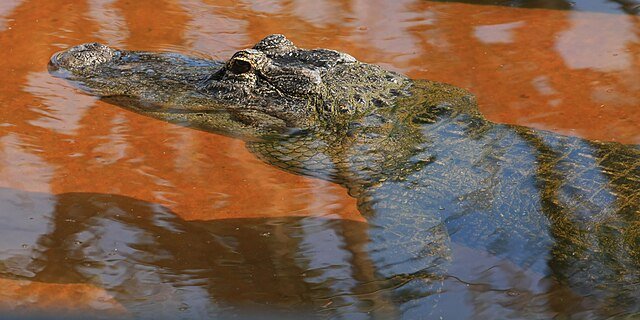New immigration detention center: “Alligator Alcatraz”
The new immigration center in Florida will use the Everglades as a natural barrier. It combines extreme measures and inhospitable landscapes.

Photo: Public domain, via Wikimedia Commons
Amidst swamps and alligators, Florida began construction this week on a controversial immigration detention center in the Everglades called "Alligator Alcatraz." The project is part of the mass deportation plan promoted by former President Donald Trump.
Nicknamed “Alligator Alcatraz,” the enclosure will use the natural environment as a security barrier.
The facility is being built on a former runway at the Dade-Collier Training and Transition Airport, about 60 kilometers from Miami and near Everglades National Park.
The land, covering more than 100 km², had been abandoned since the 1970s after an airport plan in the area failed for environmental reasons.
“Natural” security and low cost
Florida Attorney General James Uthmeier claims the remote location allows for reduced costs on fencing and surveillance. “If people go outside, they won't be expecting much more than alligators and pythons,” he said in a promotional video, which shows the reptiles attacking in slow motion.
The infrastructure will be "light": tents, trailers, and National Guard surveillance. The opening is scheduled for early July.
Federal support and political objectives
The federal government endorsed the plan. Homeland Security Secretary Kristi Noem hailed the project as "innovative and cost-effective," confirming that it will be funded in part by FEMA funds, which were previously used for humanitarian assistance.
Trump is seeking to increase immigration arrests to 3,000 per day. The Everglades center is part of a broader plan that includes reopening facilities like Alcatraz and Guantanamo Bay.
Rejection by environmentalists
Groups like Friends of the Everglades They protested this weekend against the ecological impact of the center. In a public letter, they warned that the site is "crucial to the future of the Everglades" and that its development represents a historic setback.
Eve Samples, the group's director, recalled that the site was protected in the 1960s thanks to citizen pressure. "It's an improvised and dangerous idea," she said.
Concern for human rights
Human rights organizations expressed concern about the conditions in which migrants will be detained: in a hostile, isolated environment with no easy access to legal or medical assistance.
Uthmeier assured that "due process" will be respected, although he did not detail how those rights will be guaranteed in a location so far from cities.
For more stories like this, follow More Latin.
Sources:
